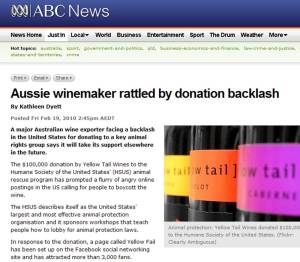Nine states. More than 50 hours of training farmers and ag organizations on social media. 2 tornado warnings during 15+ hours of driving, topped by 5 severe thunderstorms. Gratitude for the way others in ag welcomed new folks. 15+ flights; 1 diverted, many delayed and two cancelled. Tired vocal cords. And outstanding conversations with close to 200 farmers. That was my June.
 We had great discussions about the necessity of farmers speaking out in a more proactive way. Most people I’ve worked with in the last month agreed agriculture has developed a tendency to be defensive. After all, if you’re backed into a corner, you’re likely to come out fighting, right? Local food, biotechnology, organic, animal welfare, subsidies, carbon footprint, fuel, etc. are all hot issues that have seemingly put our backs up against a wall.
We had great discussions about the necessity of farmers speaking out in a more proactive way. Most people I’ve worked with in the last month agreed agriculture has developed a tendency to be defensive. After all, if you’re backed into a corner, you’re likely to come out fighting, right? Local food, biotechnology, organic, animal welfare, subsidies, carbon footprint, fuel, etc. are all hot issues that have seemingly put our backs up against a wall.
Rather than looking at this as being put in the corner and constantly defending ourselves, I believe the interest in food and fuel offers an incredible opportunity for agriculture to be a part of the conversation.
1. Listen: How will you connect with a person if you don’t take the time to listen? Groups on Linkedin or Twitter conversations are a great place to listen to folks, even if you don’t agree with them. Listen louder and you’ll get a clear look at societal interests and trends far removed from your driveway. It’s about broadening your horizons, understanding another viewpoint and learning about others. This does not mean you have to agree!
2. Engage: Unlike some folks I met in Missouri that enjoyed collecting friends on Facebook (but not talking to them), you actually have to engage in a real conversation with people – whether you are in person or online. Look up the definition of conversation: an oral exchange of sentiments, observations, opinions, or ideas. As you engage with people, you widen the stream of communications, bringing in others and deepening the “trust well.” It’s about connecting on an emotional level.
3. Educate: After you listen and engage, you earn the right to educate. I had a person in Iowa tell me this week that he didn’t want to waste his time on the first two – he just wanted to be able to tell people the facts. That may work in his playbook, but it doesn’t in the majority of communities. There’s a reason that 460 million people are on Facebook; humans enjoy interfacing with humans. A glimpse into life on the farm with a photo from your phone, perspective from a farm family or a tidbit on how food gets to the grocery store can provide that very human connection. Telling people what you want them to know doesn’t connect at the same level if you don’t have a relationship.
Sometimes we need to realize a question is just a question. The question doesn’t mean that a consumer is dumb, your neighbor is against your farm, or a mom is questioning how you raise food. The question means the person is opening the doorway for a conversation. Will you slam that door shut by being defensive? Or, will you take the time to listen and engage?
We’ll never be able to earn the right to educate if we only defend. Take the time today to listen and engage – then you’ll be able to educate far more effectively to help people know how deeply you care.



